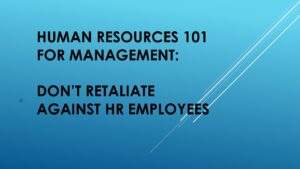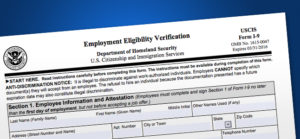 A longtime friend has been battling cancer for the second time in recent years. Although the experience has been physically, emotionally and spiritually challenging for her and her family, she has remained positive and grateful for the many precious gifts in her life. She is truly an inspiration. During this ordeal, her employer has accommodated her absences, and has allowed her to continue working from home. It has been a mutual benefit, as the employer has retained an experienced and loyal employee, and my friend has kept her salary and benefits, not to mention the self-respect and dignity that accompanies her dedicated work.
A longtime friend has been battling cancer for the second time in recent years. Although the experience has been physically, emotionally and spiritually challenging for her and her family, she has remained positive and grateful for the many precious gifts in her life. She is truly an inspiration. During this ordeal, her employer has accommodated her absences, and has allowed her to continue working from home. It has been a mutual benefit, as the employer has retained an experienced and loyal employee, and my friend has kept her salary and benefits, not to mention the self-respect and dignity that accompanies her dedicated work.
Unfortunately, some employers have little patience or understanding for injured, ill or disabled workers. Federal and Texas law provides some protections, but it far from complete. The Family and Medical Leave Act (FMLA), allows “eligible” employees up to twelve weeks of protected medical leave per year due to a serious health condition. This law, however, does not apply to all companies or workers. If you have worked for a company less than a year, are a part-time employee, an employee of the state, or your employer has less than 50 employees working in a 75 mile radius of your workplace – then you are not covered under the FMLA.
A second problem area involves restrictive company policies. Some companies have fixed-leave policies that limit the amount of available medical leave, and then require automatic termination once the worker exceeds that amount. Other companies may have policies that only allow the return of workers on leave if they provide a full duty medical release with no work restriction. Depending on the circumstances, these types of policies may be unlawful.
The Americans with Disabilities Act (ADA) and its amendments require an employer to provide workers with disabilities “reasonable accommodations” in performing their job duties. While the ADA does not specifically reference leave in its definition of “reasonable accommodation”, EEOC guidance material and abundant case law have clearly recognized this form of accommodation.
Such accommodations may include extensions of medical leave beyond what is permitted under the FMLA or under company policy. In other words, if a company only permits up to 3 months of medical leave, but a worker expects to be able to return to work in 4 months, generally the employer must provide the extension (if requested by the worker), unless they can prove that providing the leave extension would create an undue hardship on its business. Factors for this undue hardship defense may include the size of the employer, the cost of providing the accommodation, and the financial resources of the company. It is a case by case analysis, and not an easy burden for employers to meet.
The ADA also prohibits “no-restriction” policies that bar workers from returning to work unless they have a full duty release with no restrictions. The fact that one has a medical restriction does not mean a worker is unable to perform her essential job duties. For example, a restriction that includes frequent bathroom breaks, limits on standing, or limits on heavy lifting would not prevent most office workers from performing their job duties. In those instances where a restriction might affect the performance of a job duty, an employer must make an inquiry if some reasonable accommodation can be made to allow the worker to perform her essential job duties. In some parts of the country, the EEOC is actively litigating with employers to require changes to these types of policies.
During this Thanksgiving holiday, give thanks to the many good employers who value their employees, and when needed, provide accommodations in the workplace. For the rest, it is nice to know that the FMLA and ADA provide some protections.
“It is health that is real wealth, and not pieces of gold and silver.”
–– Mahatma Gandhi





